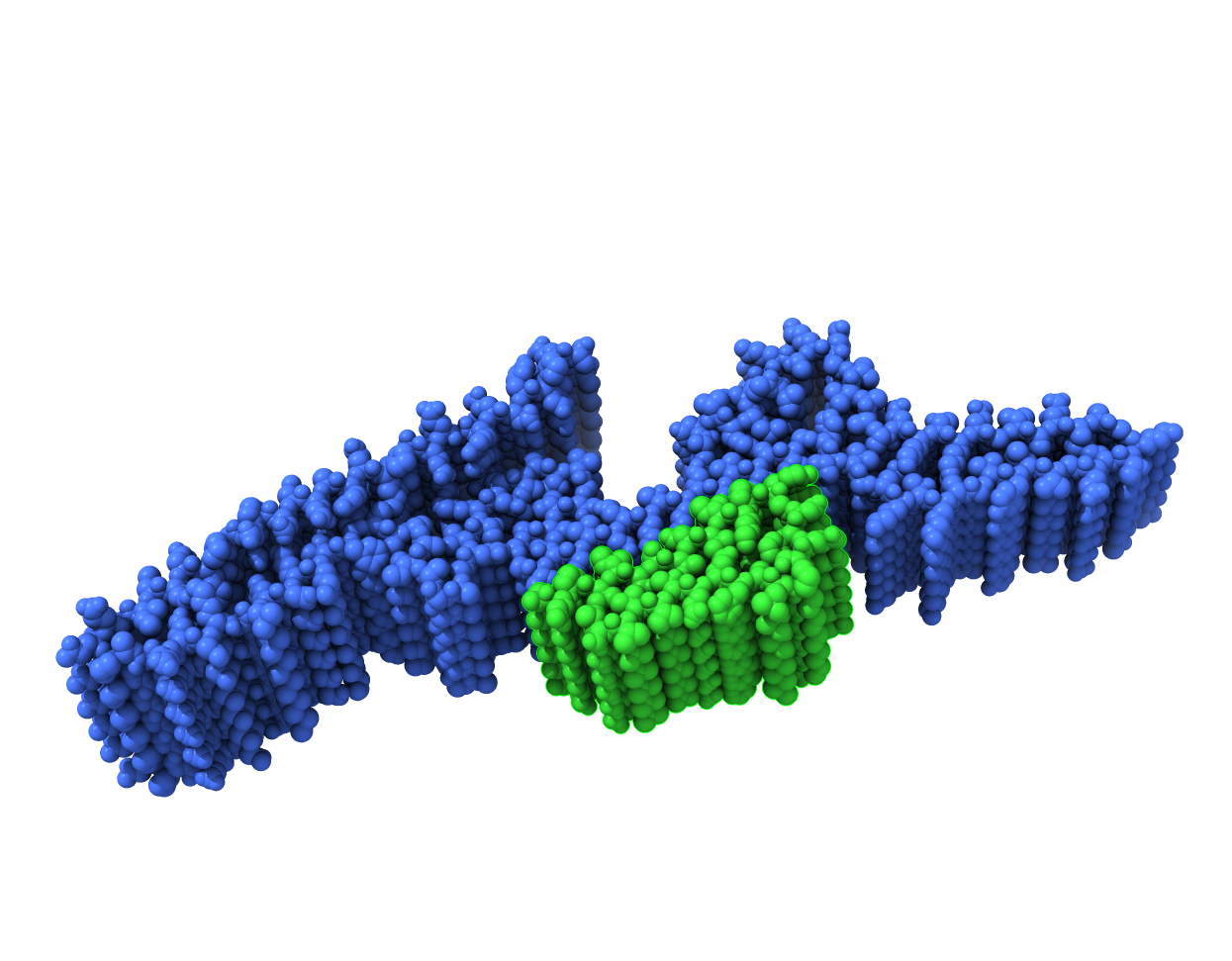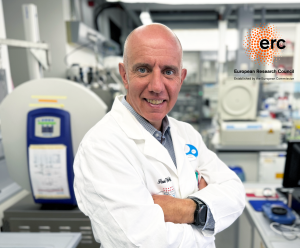Prof. Paul Wilmes was just awarded a Proof of Concept grant by the European Research Council (ERC) to explore if small proteins originating from gut microbes could serve as biomarkers for Parkinson’s disease. This neurodegenerative disorder, affecting over 6 million individuals worldwide, is generally diagnosed when motor symptoms become apparent and substantial neurological damage has already occurred. Early detection hence represents a critical unmet need that would facilitate a prompt use of available therapies to delay the progression of the disease. This is where the microbes inhabiting the human gut come into play.
“As part of my ExpoBiome project, funded by an ERC Consolidator Grant, we have uncovered that some small proteins produced by the gut microbiome can trigger the aggregation of α-synuclein, the molecular hallmark of Parkinson’s disease,” explains Prof. Wilmes, head of the Systems Ecology group at the LCSB,. “With this ERC Proof of Concept grant, we now want to establish the utility of these small microbiome-derived proteins as predictive biomarkers, meaning quantifying them in faecal or blood samples could become an efficient way of identifying people at risk and of detecting the disease early.”
Spotlight on microbiome-derived proteins

After results obtained within ExpoBiome highlighted the potential of these small microbiome-derived proteins for clinical application, Prof. Wilmes and his team developed and patented a new method to identify the most promising molecules among them. Based on advanced omics technologies and state-of-the-art artificial intelligence, this analytical pipeline is the first step to selecting the best candidate proteins for disease risk prediction and diagnostic.
Image: Example of 3D structure of six copies of a microbiome-derived small protein (in green) that cross-seeds the human α-synuclein (in blue) to form an amyloid aggregate, the molecular hallmark of Parkinson’s disease.
Refining the methodology and assessing commercial potential
With the new ERC grant, the researchers will refine the existing method and perform analyses on both faecal and blood samples from Parkinson’s patients, people diagnosed with REM sleep behaviour disorder, which often corresponds to a very early stage of the disease, and healthy controls. Confirming the presence of the selected microbiome-derived proteins in people at risk and patients will be the first step toward a non-invasive tool for early Parkinson’s screening. The grant will allow the team to address the technical feasibility and reproducibility of their method, and to assess its commercial potential by conducting a market analysis.
A collaborative endeavour to go from fundamental research to application
The project will involve international partners for clinical research and to work on a go-to-market strategy. Established collaborations with Prof. Brit Mollenhauer at the Paracelsus-Klinik in Kassel and the University Medical Center Göttingen, and Prof. Ami Bhatt’s research group at Stanford University will for example contribute to sample collection and clinical translation. Meanwhile, partners such as Dr Robert Hettich at Oak Ridge National Laboratory and Catalyze will help with measurements and business development. Additional collaborators have already expressed interest in the project: SeNostic GmbH, a German company that develops innovative diagnostic tools for neurodegenerative disorders, and NLC Health Ventures, an early-stage investment fund from Amsterdam focusing on transforming scientific discoveries into market-ready healthcare solutions.
“Several things led toward the ERC Proof of Concept grant and contributed to this success: A visiting professorship at Stanford University in 2024 during which I laid the scientific foundation and then, upon my return to Luxembourg, the continuation of the project with collaborators at the University of Luxembourg and the support of the Rotary Clubs of Luxembourg through the Espoir-en-Tête programme,” concludes Prof. Wilmes. “Our hope is that the outcome of this project will be the first microbiome-linked, blood-based diagnostic and prognostic test for a major chronic human disease. It would be a significant breakthrough in the early detection and management of Parkinson’s, supporting timely intervention and enhancing patient quality of life.”
The ExpoBiome project has received funding from the European Research Council (ERC) under the European Union’s Horizon 2020 research and innovation programme (grant agreement No 863664).
The research stay of Prof. Wilmes at Stanford University was supported by a research scholarship from the Fulbright Commission for Belgium and Luxembourg and an INTER-MOBILILTY grant from the Luxembourg National Research Fund (reference 17856242).
The project “Microbiome-derived amyloids as triggers of protein aggregation in neurodegenerative diseases”, performed in collaboration with Prof. Michael Heneka and Prof. Alexandre Tkatchenko, is supported by seed funding from the Rotary Clubs of Luxembourg through the Espoir-en-Tête programme.
